15 Best AI Tools For Product Managers
AI is everywhere, and Product Management is no exception. With new AI-powered tools launching left, right, and center – alongside existing products now boasting AI-enhanced features – it’s hard to keep up. But as a Product Manager, you don’t have time to sift through the noise to find the best ones. You need tools that you can trust to help you get things done.
That’s exactly what this list is for. We’ve rounded up the most useful AI tools for Product Managers, that can help with the many Product Manager tasks you’re faced with daily.
Whether you’re looking to refine your current tool stack or explore new ways to integrate AI into your workflow, this guide will help you cut through the hype and find the 15 best AI tools for Product Managers that truly deliver.
Jump straight into our top 15 list 🚀
Why should you use AI tools as a Product Manager?
AI tools shouldn’t be treated as just another piece of tech to bloat your current stack. They can genuinely make you work much smarter. As a Product Manager, you’re constantly juggling research, roadmaps, stakeholder updates, customer feedback, and a whole lot more. AI can take on and speed up these time-consuming tasks, giving you more space to focus on strategy and delivering real impact.
Here’s why you should use AI tools:
Cut out busy work
Repetitive tasks like taking meeting notes, data entry, and backlog grooming take up valuable time. AI can handle these, so you can focus on making decisions, not managing admin.
Speed up research
Instead of pushing through feedback, market reports, and analytics for hours, AI can surface key insights in minutes. It can summarize trends, flag patterns, and even pull customer sentiment from raw data.
Make better decisions
AI-driven analytics and predictive models help you spot trends, assess risks, forecast, and predict outcomes with more accuracy. Instead of guessing, you’ll have data-backed insights to guide your choices.
Prioritize with confidence
Some AI tools evaluate potential features based on customer impact and business goals, reducing bias and helping you make informed prioritization decisions faster.
Keep stakeholders aligned
AI can generate clear, concise updates and reports, or summarize long documents, making it easier to keep everyone on the same page without spending hours crafting messages.
Automate testing and experimentation
From A/B testing to usability analysis, AI speeds up the process and highlights actionable insights, so you can iterate faster.
Free up time for strategy
By taking care of the heavy lifting, AI gives you the space to focus on executing the product vision, problem-solving, and delivering value where it matters most.
What are the different types of AI tools?
“AI tools” is a broad term that doesn’t really capture the range of options available. Just like a hammer isn’t the same as a screwdriver, different AI tools for Product Managers serve entirely different purposes. Some are designed for automation, others for creativity, and some for deep analysis.
Before we dive into the best AI tools for Product Managers, let’s break down the main types you’ll come across:
- AI agents: These are autonomous systems that can perform tasks without constant human input. They analyze data, make decisions, and take actions based on set goals.
- Large language models (LLMs): These are AI models trained on vast datasets to understand and generate human-like text. ChatGPT and Claude fall into this category, helping with writing, summarization, and ideation.
- Generative AI tools: These tools create entirely new content, whether it’s text, code, images, or even video. They’re useful for brainstorming, design, and prototyping.
- AI transcribers: Designed to convert spoken words into written text, these tools speed up note-taking, meeting documentation, and accessibility efforts.
- Text-to-image AI: These tools generate images based on written descriptions. While generalist tools like ChatGPTcan do this, specialist tools like Midjourney and DALL·E produce more refined results.
- AI prototyping tools: Used for wireframing, UI/UX design, and product visualization, these AI-powered design assistants help product teams quickly mock up and refine ideas.
- AI writing assistants: Focused on content generation, grammar improvement, and tone adjustments. They help streamline writing tasks like release notes, product documentation, and marketing copy.
Standalone AI vs. in-built AI
Not all AI tools are standalone products built entirely around artificial intelligence. Some are preexisting tools that have integrated AI to enhance their functionality. Here’s the difference:
- Standalone AI tools: These are built purely around AI. They don’t rely on any external product but instead exist solely to perform AI-driven tasks. ChatGPT, Midjourney, and Perplexity AI are great examples that we’ll cover later on.
- Tools with in-built AI: These started as non-AI products but have since incorporated AI to improve the customer experience. Canva, for example, began as a simple design tool, but now AI powers features like instant design generation, background removal, and content recommendations. The AI isn’t the core product here – it’s an enhancement.
Generalist AI tools vs. specialist AI tools
AI tools also differ in how broad or focused they are in their functionality.
- Generalist AI tools: These are designed to handle a wide range of tasks. They might not be the best at any single thing, but they’re useful for general support. Again, ChatGPT is a perfect example – it can help with writing, coding, brainstorming, and more, but it doesn’t specialize in any one function.
- Specialist AI tools: These are fine-tuned to excel in a particular area. While ChatGPT can generate images, a dedicated tool like Midjourney produces far better results. The same goes for AI-powered research assistants or product roadmapping tools. They focus on one thing and do it exceptionally well.
We talk more about the different ways AI tools and products can be built in our online ebook. The odds are you’re likely going to be integrating AI into your current product, or build a new AI product. Understanding the AI tools at your disposal is a great way to prepare for that, but for comprehensive advice on creating AI products, check out our ebook!

So, where does our AI fit in?
ProdPad now has an integrated AI Assistant, called CoPilot, and can be seen as a bit of a mix of everything. It’s a specialist, built-in AI tool designed exclusively for Product Managers and those working on product roadmaps. It helps with a range of Product Management tasks, from creating initiatives and analyzing feedback to setting objectives and summarizing product documentation. Instead of being a generalist AI that’s not quite cut out for the job, CoPilot is built to support real product decisions – making your workflow faster, smarter, and more strategic.
Learn more about CoPilot – AI designed for Product Managers
15 AI tools for Product Managers
In no particular order, here are the best AI tools for Product Managers that you should consider adding to your stack.
1. ProdPad CoPilot – Product Management focused AI
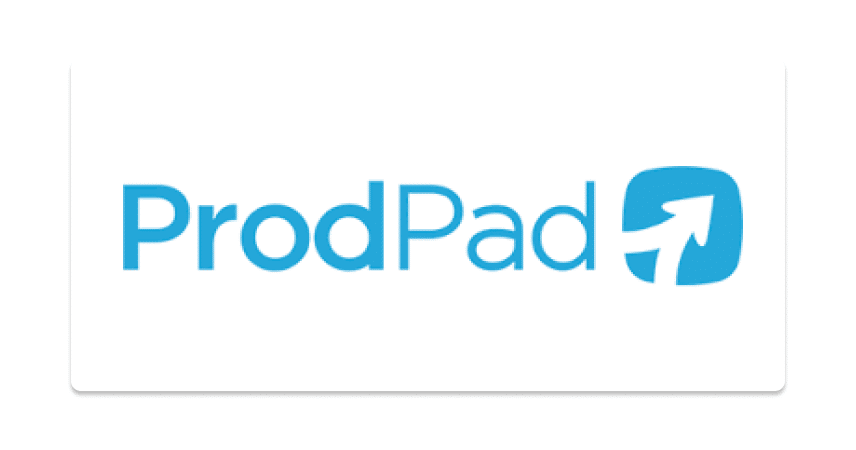
We’re not going to do that thing where we say we feel obliged to include our own AI tool, because that seems insincere. It doesn’t do the tool justice. CoPilot is included by merit and deserves to be considered one of the best AI tools for Product Managers.
CoPilot is unique, as it’s built from the ground up exclusively for the Product Management function. The in-built generative AI is trained on Product Management best practices, meaning that the outputs generated are highly relevant and trustworthy – more so than generalist tools that can often sprout up some untrue hallucinations.
As an extension to the overall ProdPad software, CoPilot has a deep understanding of your roadmap and product and can use that to do some incredible things like analyzing your customer feedback, pulling up recurring themes, prioritizing your initiatives automatically, and generating all kinds of product documentation.
CoPilot has all the context about your product, meaning you don’t have to learn complicated prompt engineering to ensure quality outputs, meaning that using the tool doesn’t feel like a chore. With Copilot you can:
- Get best-practice coaching and advice – it’s like having a product expert at the palm of your hand
- Interrogate your entire backlog and roadmap
- Field stakeholder questions
- Set measurable objectives and key results that make sense
- Create and summarize product documentation with a click
To give CoPilot a go, try ProdPad for free and see how it can make you a good Product Manager.
Try CoPilot today
2. ChatGPT – Generalist AI tool for Product Managers

I know ChatGPT, you know ChatGPT, I’m sure your sweet old grandma knows ChatGPT. As the most wildly known AI tool for Product Managers, ChatGPT is very much a jack-of-all-trades, offering Product Managers a lot of options and use cases.
ChatGPT is generative AI that can help Product Managers think through complex problems, explore new ideas, and make sense of vast amounts of information. As a generalist tool, you can shape it for whatever you need. Whether you need to validate an idea, prioritize initiatives, or get quick insights on industry best practices, ChatGPT can help.
One of its strengths is brainstorming. Need fresh feature ideas? Struggling to frame a problem? ChatGPT can generate structured suggestions and alternative perspectives in seconds. It’s also handy for sense-checking decisions, helping PMs weigh trade-offs, analyze risks, and refine their thinking.
Beyond ideation, ChatGPT is useful for tackling the information overload that comes with Product Management. It’s able to summarize customer feedback that you feed to it, synthesize research, and even help break down technical concepts into plain language for you or stakeholders.
With ChatGPT, Product Managers can:
- Generate and refine feature ideas, product concepts, and positioning statements
- Prioritize initiatives by analyzing trade-offs and potential impact
- Get quick explanations of technical, industry, or business concepts
- Summarize user feedback and research findings into actionable insights
- Explore different perspectives to improve decision-making
3. Rytr – AI writing assistant for Product Managers
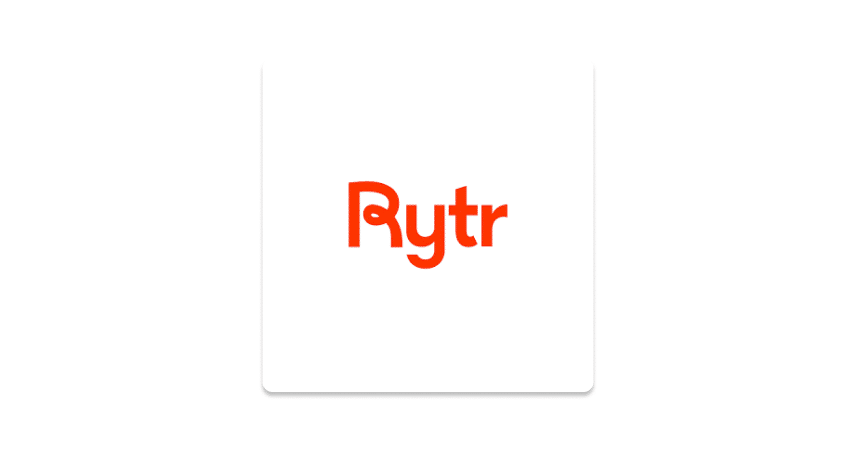
Rytr is an AI writing assistant that helps Product Managers quickly produce clear, engaging content without starting from scratch. Whether you’re drafting release notes, feature announcements, or customer communications, Rytr streamlines the process, ensuring everything stays on-brand and professional.
What makes Rytr stand out is its collection of pre-built templates designed for business communication, product marketing, and technical documentation. This makes it a handy tool for PMs working on user guides, help center articles, or even internal strategy docs. It’s also useful for brainstorming and generating structured ideas for go-to-market product launches and blog content.
For Product Managers juggling a high volume of written tasks, Rytr takes care of the heavy lifting, freeing up more time for strategy and decision-making.
With Rytr, you can:
- Generate release notes, feature announcements, and marketing copy in minutes
- Create structured content for help centers and user documentation
- Brainstorm product messaging and positioning ideas
- Craft in-product copy
- Speed up content creation without sacrificing quality or consistency
4. Fathom AI – AI meeting transcription for PMs
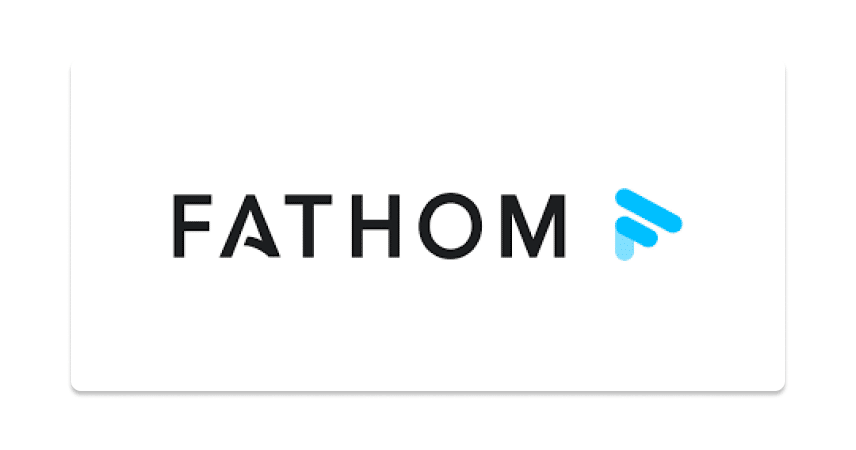
Fathom AI is a meeting transcription tool that takes the hassle out of note-taking, automatically recording, transcribing, and summarizing key points from all the various meetings you have as a PM. For Product Managers juggling stakeholder calls, customer interviews, CAB meetings, and sprint reviews, Fathom AI ensures that no insight slips through the cracks.
One of its biggest strengths is its ability to generate instant meeting summaries, saving PMs from sifting through lengthy recordings. Need to revisit a past decision or track down an action item? Fathom AI lets you search transcripts by keyword, making it easy to find exactly what you need.
Beyond transcription, Fathom AI is a game-changer for customer discovery. It highlights recurring themes from user conversations – surfacing pain points, feature requests, and objections that can inform product decisions.
With Fathom AI, Product Managers can:
- Automatically transcribe and summarize virtual meetings
- Search past conversations to find key insights and action items
- Capture customer feedback and feature requests without missing a detail
- Stay focused in discussions instead of worrying about note-taking
5. Perplexity AI – AI-powered research tool for PMs
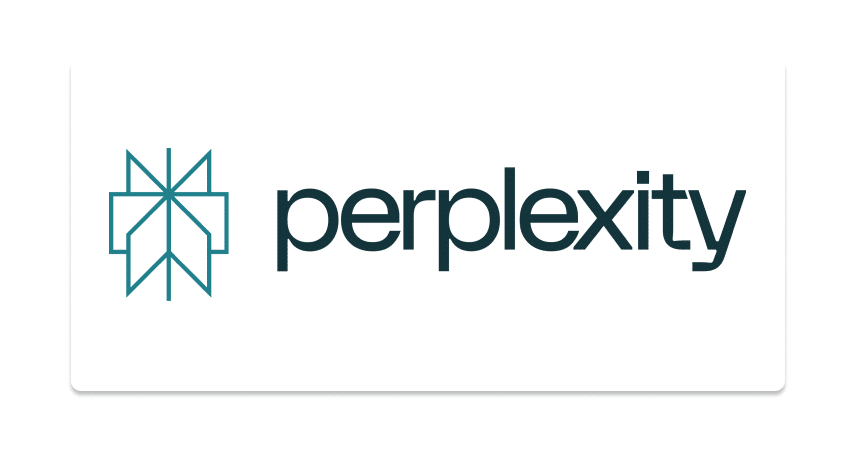
Perplexity AI is essentially an AI-powered search engine that can help Product Managers with up-to-date research and get straight to the insights they need. Instead of wading through endless search results, Perplexity AI delivers detailed, curated answers from multiple sources, saving time and making research more efficient.
Perplexity has the one-up over similar AI tools like ChatGPT because it doesn’t have a knowledge cutoff. Many tools are oblivious to recent events, making things like market research risky. But with Perplexity, it pulls from the web, meaning that its information is up-to-date and accurate.
For PMs working on market analysis, competitor research, or industry trends, this tool is a game-changer, allowing PMs to make informed decisions without the usual research grind.
If a PM is looking for best practices, historical trends, or expert opinions on a product decision, Perplexity AI can pull together the most relevant and up-to-date information without the need to look through multiple sources manually.
With Perplexity AI, Product Managers can:
- Get instant, high-quality answers to market and competitor research questions
- Stay up to date with industry trends without digging through countless articles
- Streamline research and focus on strategic thinking instead of information-hunting
6. Motion – AI-powered time management for PMs

Take a look at your calendar. It properly looks horrendous with multiple meetings and events everywhere. Organizing your time as a PM can turn into such a huge time sink. Thankfully, AI can now help with that.
Motion is an AI-driven scheduling tool that helps Product Managers make the most of their day-to-day by intelligently organizing meetings, tasks, and deep work sessions. Instead of manually juggling calendars and to-do lists, Motion automates time allocation, ensuring that high-priority work doesn’t get buried under endless meetings and distractions.
For PMs balancing multiple projects, stakeholders, and deadlines, Motion’s dynamic scheduling system adapts in real-time, rescheduling tasks based on urgency, available time, and shifting priorities. It also automates task prioritization, making sure the most critical work, like roadmap planning and strategy sessions, always takes precedence.
With Motion, Product Managers can:
- Automate scheduling to optimize meetings, tasks, and focused work sessions
- Adapt to shifting priorities without manually reworking their calendar
- Ensure high-impact work doesn’t get deprioritized due to meeting overload
- Free up mental bandwidth by offloading time management to AI
7. Reclaim.ai – Time management AI tool for Product Managers

Time management is so important as a Product Manager, so we thought we’d give you another AI tool in this category. Reclaim.ai is another AI-powered time management tool aimed at helping Product Managers gain more control over their schedules. This AI-driven tool integrates with calendars, task lists, and team workflows to automatically carve out time for meetings, deep work, and project milestones – ensuring that important tasks don’t get lost in the chaos.
Unlike static scheduling tools, Reclaim.ai continuously analyzes a PM’s workload and adjusts their calendar in real-time. Reclaim is actually my AI time management tool of choice because it places a strong emphasis on protecting focus time, analyzing patterns, and ensuring that deep work doesn’t get pushed aside. It automatically blocks focus time, reschedules tasks as priorities shift, and even optimizes meetings by prioritizing them based on urgency.
With Reclaim.ai, Product Managers can:
- Automate scheduling to balance meetings, deep work, and strategic planning
- Adjust calendars dynamically based on shifting priorities and deadlines
- Ensure critical work isn’t sidelined by an overloaded schedule
- Reduce time spent manually managing their calendar and avoid burnout
8. MidJourney – Image generation AI tool for Product Managers

MidJourney is an AI tool that can help you create images, but isn’t just for designers – it’s an AI tool for Product Managers that can tackle all types of image creation. With a few prompts, you can generate high-quality, custom images, making it a handy tool for Product Managers who need visuals for everything from roadmap presentations to marketing materials.
What sets MidJourney apart is how it enables PMs to craft concept art, mockups, and promotional visuals without having to learn complex design software. Whether you’re sketching out early-stage product ideas or building assets for a feature launch, MidJourney makes it easy and efficient.
MidJourney ensures that your visuals are aligned with your product’s identity and messaging, creating a consistent and cohesive look across all materials. Here’s how you can use it:
- Generate tailored visuals for early product concepts
- Create marketing imagery and promotional materials in no time
- Design mockups for user interfaces without needing a designer’s skills
- Visualize complex product features or user stories
- Maintain brand consistency across all visual content
9. Notion AI – Productivity & documentation AI tool for Product Managers
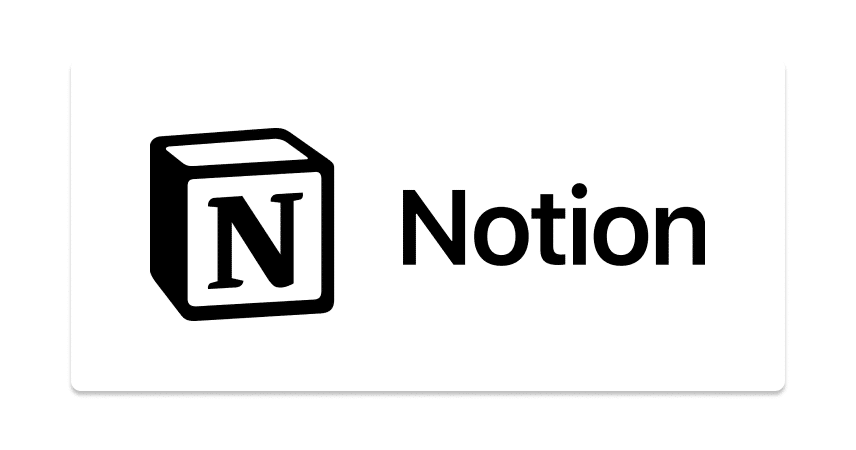
Notion AI takes the already robust Notion workspace and adds AI-driven capabilities, turning your Product Management tasks into streamlined, automated processes. It’s a decent tool for PMs who want to work smarter, not harder, by automating writing, summarizing content, and generating structured documents – all within Notion’s familiar interface.
One of Notion AI’s features is its ability to instantly summarize long-form text. Product Managers can generate meeting summaries, extract key insights from customer interviews, or condense research reports into actionable points.
Notion AI also handles repetitive tasks like creating templates for retrospectives, roadmaps, and sprint planning. And because Notion integrates seamlessly with existing knowledge bases, all documents remain structured, searchable, and easy to access.
For Product Managers facing information overload, Notion AI serves as a writing assistant, knowledge organizer, and strategic helper, all in one. Here’s how you can benefit:
- Generate PRDs, meeting notes, and competitive analyses quickly
- Summarize long documents and extract key insights
- Automate templates for retrospectives, roadmaps, and sprints
- Keep knowledge bases organized and easily accessible
10. Tome – AI-powered presentations for PMs
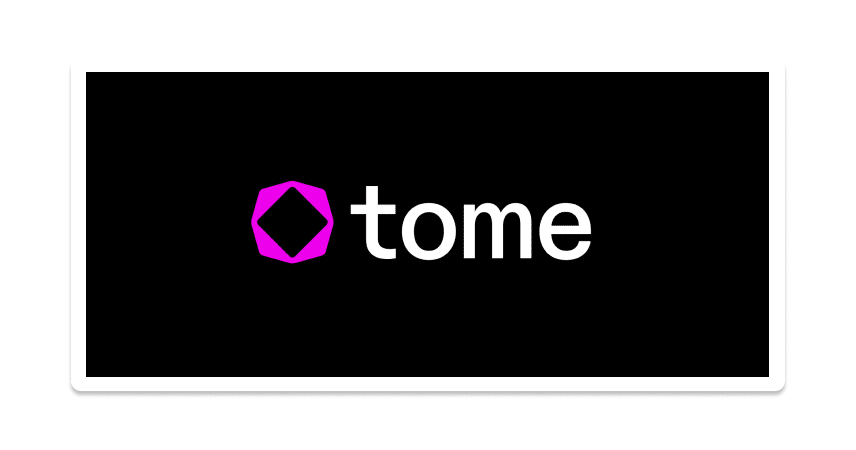
Tome actually does a few different things, but I want to focus on its presentation capabilities. Tome AI helps Product Managers craft compelling narratives, whether for product pitches, roadmaps, or key stakeholder updates. Unlike traditional slide decks, Tome builds structured, dynamic presentations that are both clear and engaging.
One of the biggest challenges for PMs is making complex product decisions easy to understand. Tome automates slide creation, transforming raw data, bullet points, and ideas into polished, visually appealing presentations in minutes. This makes it an invaluable tool for vision decks, stakeholder updates, and go-to-market strategies.
Beyond static slides, Tome enables interactive storytelling – integrating multimedia, live data, and responsive content to make presentations more engaging. Whether you’re walking stakeholders through a new feature roadmap or using data storytelling to highlight customer impact, Tome simplifies the process.
With Tome, Product Managers can:
- Turn rough ideas into polished presentations instantly
- Automate slide creation for vision decks and product updates
- Integrate live data and multimedia for dynamic storytelling
- Streamline stakeholder communication and buy-in
- Present complex product decisions with maximum clarity and impact
11. Cursor – AI-powered coding assistant for Product Managers
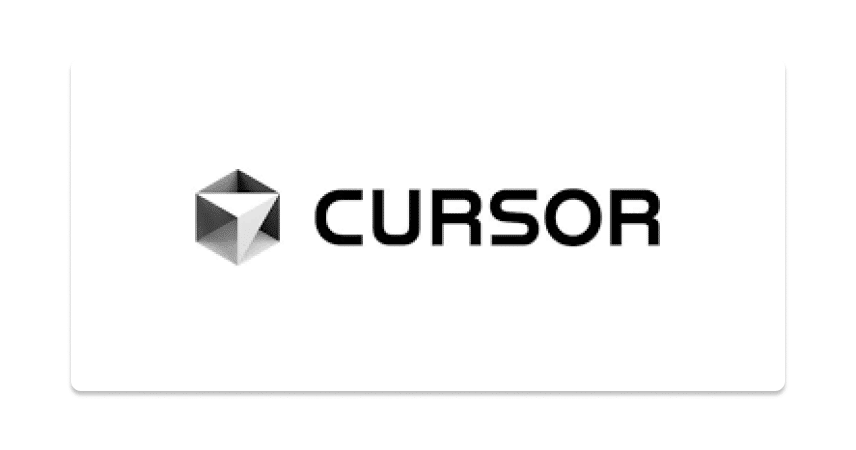
Cursor is an AI-powered coding assistant built specifically for Product Managers who need to get a bit technical. Cursor integrates into code editors, providing real-time assistance with coding, debugging, and even explaining complex code.
For PMs who work closely with Engineering teams or are responsible for coding tasks themselves, Cursor can be a game-changer. It helps you understand codebases faster, generate boilerplate code, and suggest optimizations, making it easier to prototype features, review pull requests, or debug code without getting bogged down by technical details.
One of Cursor’s key strengths is its ability to explain code in plain language, allowing PMs to bridge the gap between technical and non-technical stakeholders. Cursor makes the process simpler and more accessible.
By using Cursor, PMs with a technical edge can speed up their workflow, improve collaboration with Engineering teams, and reduce friction in the development process. Here’s how you can make the most of it:
- Get real-time code assistance and debugging help
- Generate boilerplate code and suggest optimizations
- Understand complex codebases and implementation decisions
- Simplify communication between technical and non-technical stakeholders
- Streamline documentation for technical debt and other code-related topics
12. Replit – AI-powered coding environment
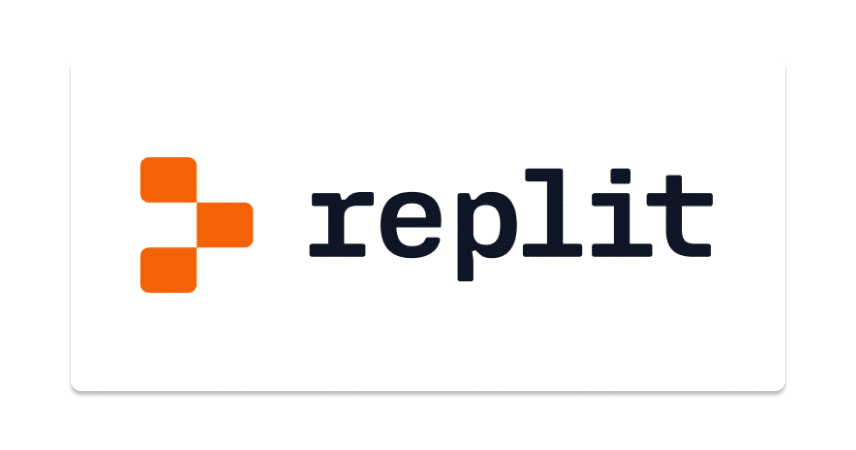
Replit is an AI-powered, browser-based coding platform that brings rapid prototyping, collaborative coding, and automated code generation to the fingertips of Product Managers. Unlike more traditional coding environments, Replit eliminates the need for complex local setups, making it easy for PMs to start experimenting and building prototypes immediately.
For PMs who want to quickly test ideas or create proofs-of-concept, Replit offers a user-friendly solution that even those with limited coding experience can navigate. Its AI-assisted coding suggestions help streamline the process of building functional prototypes, without the steep learning curve often associated with development.
What sets Replit apart from tools like Cursor is its strong focus on collaboration. It’s built for team-based environments, making it ideal for PMs working closely with Engineers. Replit’s pair programming features allow you to leave comments, try out code snippets, and even create lightweight automation scripts – all directly within the platform.
By using Replit and its AI features, PMs can transition seamlessly from ideation to execution, with enhanced collaboration and faster iteration. Here’s how it helps:
- Quickly spin up prototypes and test ideas without complex setups
- Experiment with code snippets
- Collaborate with engineers through pair programming features
- Build lightweight automation scripts for experimentation
- Accelerate iteration cycles and validate concepts faster
13. Figma AI – AI-Powered Design & UX Prototyping for PMs
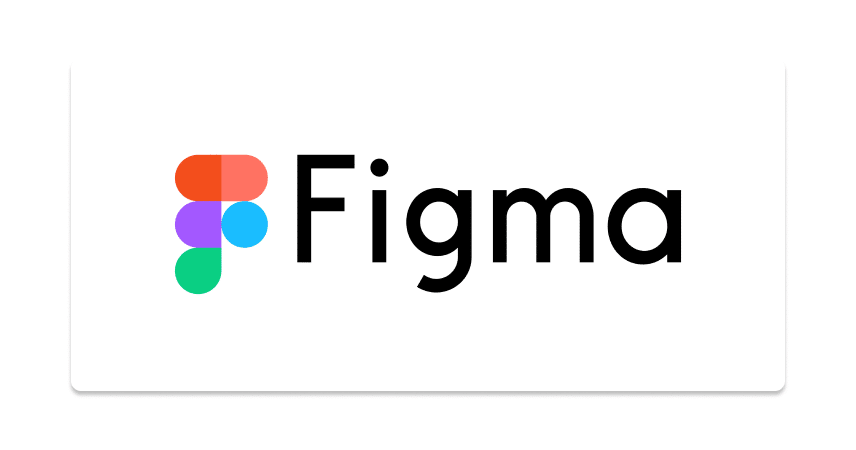
Figma has long been the go-to design tool for those in the product team, especially Designers, and now it’s even better with the power of AI. Figma AI adds enhancements to Figma’s already robust capabilities by adding AI-driven automation to UI design, wireframing, and prototyping, making it a powerful ally for Product Managers looking to speed up iteration and enhance collaboration with Design Teams.
One of the standout features of Figma AI is its ability to automate UI generation. PMs can simply input descriptions, and the AI will suggest layouts, components, and even user flows. This is especially valuable for PMs who need to quickly generate low-fidelity wireframes to align teams on product concepts before the design team dives in.
By using Figma AI, PMs working on feature development, onboarding flows, or user testing can accelerate the design process, ensure better team alignment, and make more informed UX decisions. Here’s how Figma AI can support you:
- Automatically generate UI designs, layouts, and user flows from descriptions
- Create low-fidelity wireframes to align teams on concepts
- Analyze user interactions and suggest design optimizations
- Review usability reports, heatmaps, and A/B test results with AI-driven insights
- Improve collaboration with design teams for faster iteration and feedback
14. Loveable – Prototyping AI tool for Product Managers
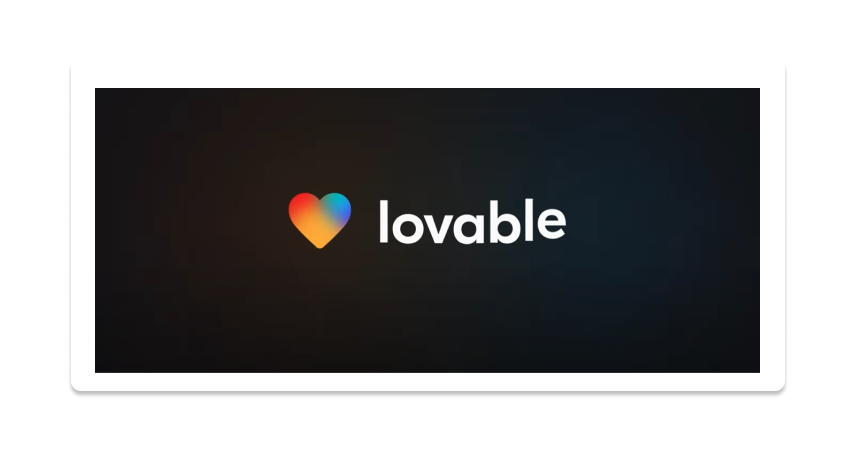
Loveable is your full-stack Engineer powered by AI, turning your app or product ideas into fully functional applications. It’s designed to bridge the gap between ideation and execution, enabling Product Managers to quickly prototype and iterate without the need for deep technical expertise.
With Loveable, PMs can simply describe the product idea or feature they want to build, and the AI will automatically generate the necessary code, architecture, and even a working prototype.
Whether you’re testing a new feature, exploring a potential product direction, or validating a concept, Loveable transforms abstract ideas into tangible applications in record time.
This makes it an ideal tool for fast experimentation and early-stage product development. You can quickly prototype ideas, test functionality, and even share prototypes with stakeholders, all without having to wait for a development team to get involved.
Here’s how Loveable can help PMs move from idea to execution:
- Turn product ideas or feature descriptions into functional applications
- Build working prototypes for testing and validation with no coding required
- Experiment with new ideas quickly and iteratively, without development delays
- Prototype complex features or entire products and share them instantly with stakeholders
- Save time and resources by generating app code and architecture automatically
15. ChatPRD – AI-Driven Product Requirements Document Generator
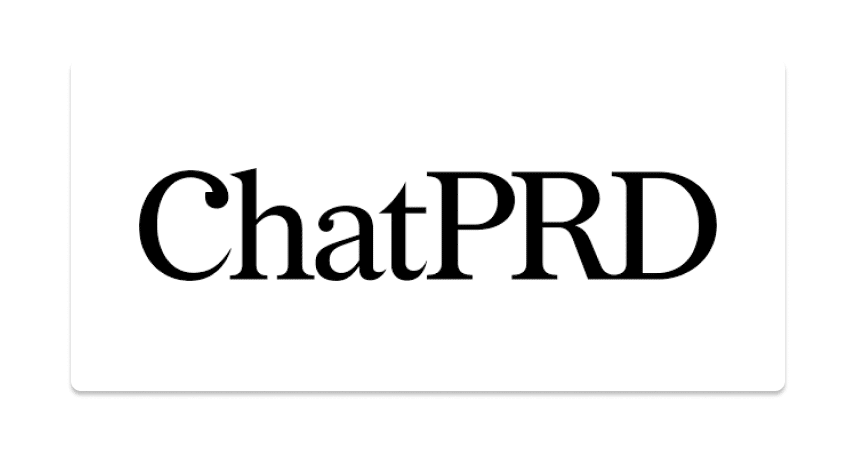
ChatPRD is an AI-powered tool designed to help Product Managers create product requirements documents (PRDs). It automates the process of gathering product requirements, structuring them, and ensuring they align with the overall product vision.
ChatPRD claims to be able to generate dynamic PRDs based on real-time context. By analyzing user input, whether from meetings, emails, or conversations, it automatically extracts key information and organizes it into a structured document.
The tool is useful for aligning PRDs with stakeholder expectations while keeping a consistent product narrative.
Here’s how ChatPRD can make a difference for PMs:
- Automatically generate comprehensive, structured PRDs from input such as emails, meetings, or conversations
- Align product goals, user needs, technical specs, and timelines effortlessly
- Save time by eliminating manual data entry and document structuring
- Ensure PRDs reflect stakeholder expectations and product vision
- Improve consistency and clarity in product documentation
Tools to make your life easier
There you have it – the best AI tools for Product Managers, hand-selected by us at ProdPad to help you work smarter, not harder. With AI integrated into so many aspects of your daily workflow, these tools aren’t just novelties, they’re productivity boosters. From speeding up research to automating time-consuming tasks, they free you up so you can focus on what really matters: delivering value, refining your product vision, and making data-driven decisions.
If you’re ready to take your output to the next level, we highly recommend giving CoPilot a try. This AI assistant was built specifically for Product Managers, integrating seamlessly with your roadmap and product context. It helps with everything from generating product documentation to analyzing customer feedback, making it an indispensable part of your tool stack.
With CoPilot, you don’t just get another AI tool, you get a Product Expert at your fingertips, empowering you to be more strategic and efficient in your day-to-day work. Start your free trial today and see how CoPilot can make a tangible impact on your workflow.
Try the best AI for Product Managers – Try CoPilot today
